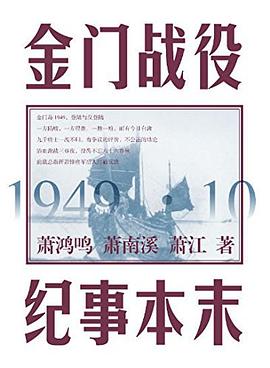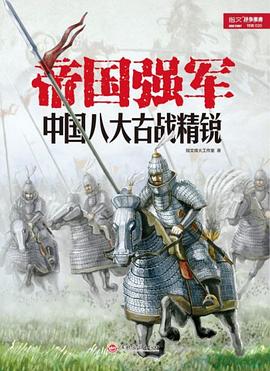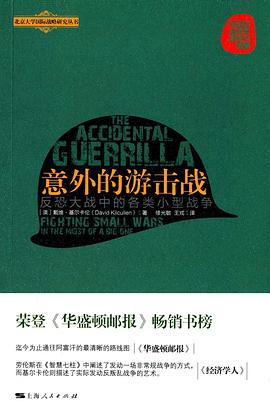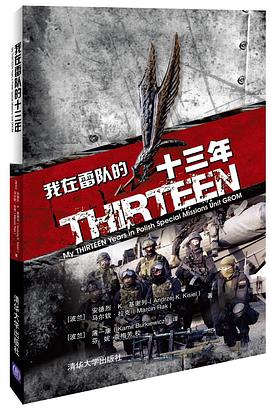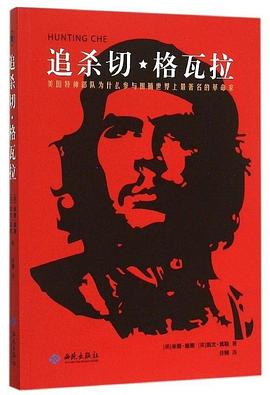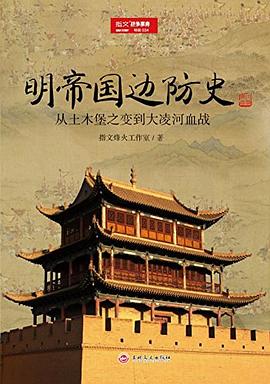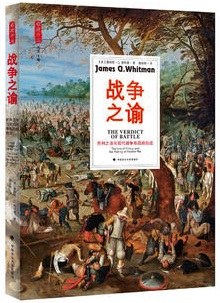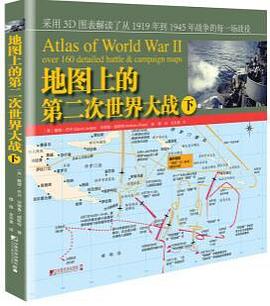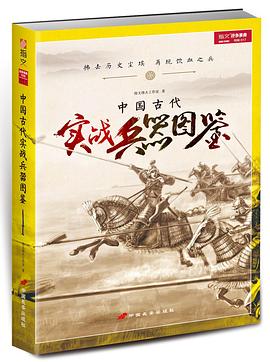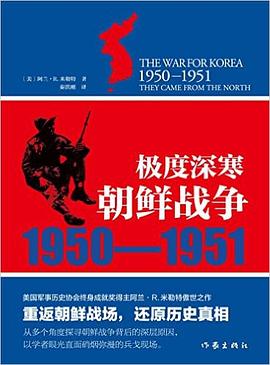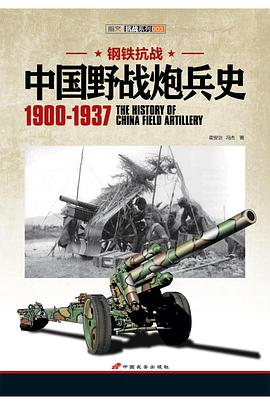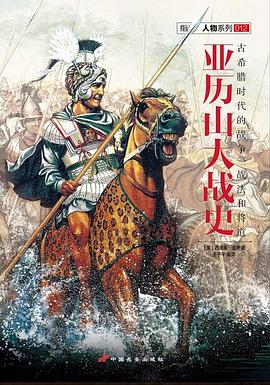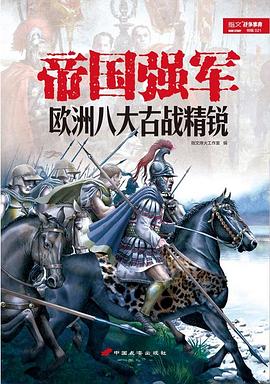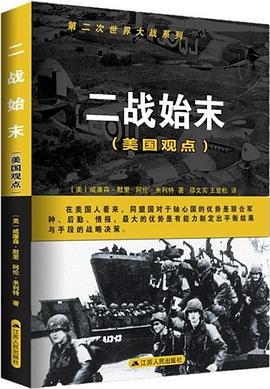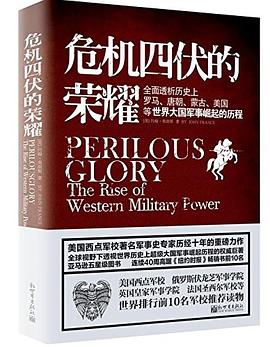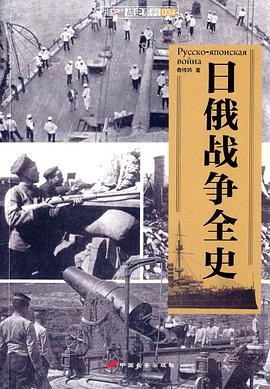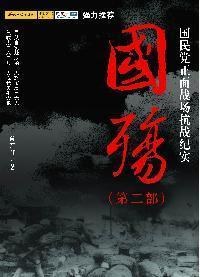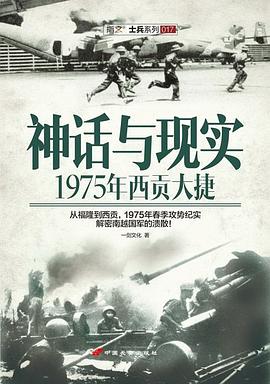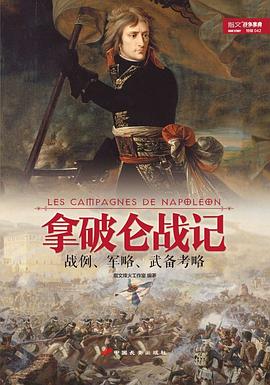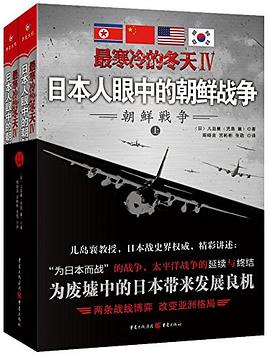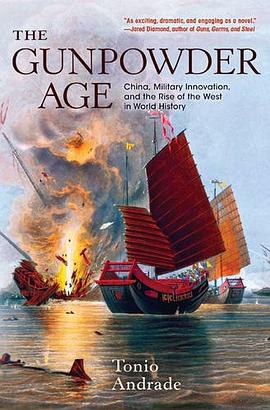

具体描述
The Chinese invented gunpowder and began exploring its military uses as early as the 900s, four centuries before the technology passed to the West. But by the early 1800s, China had fallen so far behind the West in gunpowder warfare that it was easily defeated by Britain in the Opium War of 1839–42. What happened? In The Gunpowder Age, Tonio Andrade offers a compelling new answer, opening a fresh perspective on a key question of world history: why did the countries of western Europe surge to global importance starting in the 1500s while China slipped behind?
Historians have long argued that gunpowder weapons helped Europeans establish global hegemony. Yet the inhabitants of what is today China not only invented guns and bombs but also, as Andrade shows, continued to innovate in gunpowder technology through the early 1700s—much longer than previously thought. Why, then, did China become so vulnerable? Andrade argues that one significant reason is that it was out of practice fighting wars, having enjoyed nearly a century of relative peace, since 1760. Indeed, he demonstrates that China—like Europe—was a powerful military innovator, particularly during times of great warfare, such as the violent century starting after the Opium War, when the Chinese once again quickly modernized their forces. Today, China is simply returning to its old position as one of the world’s great military powers.
By showing that China’s military dynamism was deeper, longer lasting, and more quickly recovered than previously understood, The Gunpowder Age challenges long-standing explanations of the so-called Great Divergence between the West and Asia.
作者简介
Tonio Andrade is professor of history at Emory University and the author of Lost Colony: The Untold Story of China’s First Great Victory over the West (Princeton) and How Taiwan Became Chinese.
目录信息
PART I: CHINESE BEGINNINGS
Chapter 1 The Crucible: The Song Warring States Period 15
Chapter 2 Early Gunpowder Warfare 29
Chapter 3 The Mongol Wars and the Evolution of the Gun 44
Chapter 4 Great Martiality: The Gunpowder Emperor 55
PART II: EUROPE GETS THE GUN
Chapter 5 The Medieval Gun 75
Chapter 6 Big Guns: Why Western Europe and Not China Developed Gunpowder Artillery 88
Chapter 7 The Development of the Classic Gun in Europe 103
Chapter 8 The Gunpowder Age in Europe 115
Chapter 9 Cannibals with Cannons: The Sino-Portuguese Clashes of 1521-1522 124
PART III: AN AGE OF PARITY
Chapter 10 The Frankish Cannon 135
Chapter 11 Drill, Discipline, and the Rise of the West 144
Chapter 12 The Musket in East Asia 166
Chapter 13 The Seventeenth Century: An Age of Parity? 188
Chapter 14 A European Naval Advantage 196
Chapter 15 The Renaissance Fortress: An Agent of European Expansion? 211
PART IV: THE GREAT MILITARY DIVERGENCE
Chapter 16 The Opium War and the Great Divergence 237
Chapter 17 A Modernizing Moment: Opium War Reforms 257
Chapter 18 China's Modernization and the End of the Gunpowder Age 273
Conclusions - A New Warring States Period? 297
Acknowledgments 307
Appendix 1: Timeline 311
Appendix 2: Datasets 312
Abbreviations 317
Notes 319
Bibliography 379
Index 421
· · · · · · (收起)
读后感
世界历史届一直有一个 Great Divergence Debate(大分流)的讨论,其中中心就是中国相对于欧洲是在什么时候、如何衰落的。其中一个分支问题就是中国的军事衰落是何时、如何发生的呢? 这本书提供了一部分答案: 1. 尽管很多人说明朝郑和下西洋的终结和明朝的闭关锁国是中国开始...
评分历史是个**,胜利者想怎么表述就表述。 历史真的不是一个一句话,一个观点,一本书就能够说清楚的。每个生活在当时的人,都是那段历史的缔造者,而作为一个个后来的人,大家怎么看待以前历史的,这是一个有意思的话题也是一个需要正视的问题。 说了这么多,现在切入正题——就...
评分世界历史届一直有一个 Great Divergence Debate(大分流)的讨论,其中中心就是中国相对于欧洲是在什么时候、如何衰落的。其中一个分支问题就是中国的军事衰落是何时、如何发生的呢? 这本书提供了一部分答案: 1. 尽管很多人说明朝郑和下西洋的终结和明朝的闭关锁国是中国开始...
评分 评分火药是中国人的发明,可是欧洲人的枪炮后来居上,甚至一度在中国的土地上耀武扬威。中国为何没能把握先机,反而变成了“睡狮”?美国历史学家欧阳泰在《从丹药到枪炮:世界史上的中国军事格局》一书中探讨了军事分流的原因。 其实在欧阳泰之前,也有许多学者解释过中国军事的“...
用户评价
《火药时代》这本书,它如同一面多棱镜,折射出火药这项发明在人类文明发展史上留下的复杂而深刻的印记。作者的叙事风格独树一帜,他以一种近乎史诗般的笔调,描绘了火药从神秘的炼金术产物,到改变战争形态、重塑政治格局的伟大进程。我尤其被书中对火药早期起源的追溯所吸引,那些关于炼金术士的传说、关于意外发现的机遇,都为这本书增添了一抹神秘的色彩。作者对火药技术传播的细致梳理,更是让我叹为观止。他不仅仅关注技术的物理迁移,更深入地探讨了文化、经济、地缘政治等因素如何影响了火药的接受度和应用方式。我仿佛能看到,当火药技术第一次传入一个陌生地域时,当地人们既恐惧又好奇的复杂心态,以及他们如何将其融入到自身的生活和战争方式中。书中对火药武器发展在不同地区呈现出的差异化特征的分析,更是让我大开眼界。无论是东方战场上的火器革新,还是西方攻城战术的演变,都展现了人类面对新技术时的独特创造力和适应性。作者的文字功底深厚,他能够将复杂的技术原理和历史事件,用通俗易懂却又不失学术严谨的方式表达出来。整本书的叙事流畅而富有张力,即便是对历史不太感兴趣的读者,也能被其深深吸引。
评分我被《火药时代》这本书深深吸引,因为它不仅仅是一部关于历史的书,更是一次对人类智慧、勇气和适应能力的深刻探索。作者以一种极为生动和富有感染力的方式,描绘了火药这项发明如何从遥远的东方走向西方,并在不同的文化土壤中生根发芽,开出璀璨又充满危险的花朵。我最着迷于书中对早期火药制造和使用过程的细节描绘,那些粗糙却充满力量的火器,那些在战场上引发的巨大混乱,都让我感受到历史的真实与震撼。作者对火药技术传播的分析,让我看到了不同文明之间是如何相互影响、相互学习的。他没有简单地将火药视为一种军事技术,而是深入探讨了它如何影响了经济、政治、社会结构,甚至艺术和哲学。我尤其欣赏书中对那些在火药时代中默默无闻的个体故事的关注,他们的艰辛、他们的智慧、他们的牺牲,共同构成了历史最真实的肌理。作者的叙事风格极为流畅且富有张力,他能够将复杂的历史事件和技术原理,用生动形象的语言解释清楚,让即便是对历史不太了解的读者也能轻松读懂。整本书的逻辑清晰,脉络分明,让我能够清晰地看到火药如何一步步改变了世界的面貌。
评分坦白说,《火药时代》的篇幅之宏大,足以让我望而却步,但当我真正翻开它,才发现自己完全低估了作者的驾驭能力。这绝对不是一本枯燥的历史教科书,而是一部充满智慧和洞察力的史诗。作者以一种非线性的叙事方式,将火药的起源、发展、传播以及对世界的影响,编织成一张错综复杂却又条理清晰的网。我非常着迷于书中对火药早期神秘色彩的描绘,它不仅仅是一种物质,更是一种禁忌、一种力量、一种对未知世界的探索。当火药第一次在战场上展现其威力时,那种由惊吓和恐惧引发的混乱,以及随后而来的战略性调整,作者都描绘得淋漓尽致。我尤其赞赏书中对火药技术如何与不同社会结构和政治体系相互作用的分析。例如,它如何帮助中央集权国家巩固统治,如何加速了封建制度的瓦解,以及如何为殖民扩张提供了强大的工具。书中那些关于火药武器研发过程中,无数无名工匠和士兵的牺牲与奉献的记述,更是让我肃然起敬。他们是这场伟大变革背后默默无闻的推动者,他们的故事虽然微小,却构成了历史的宏大叙事不可或缺的一部分。作者的笔触细腻而富有感染力,他能够将冰冷的史料转化为鲜活的故事,让我仿佛亲眼目睹了那个时代的变革与动荡。这本书不仅让我增长了见识,更引发了我对技术进步与人类命运之间关系的深刻思考。
评分当我合上《火药时代》的最后一页,我感到一阵前所未有的震撼和满足。这本书并非仅仅是在讲述火药的发明和演变,它更像是一面镜子,折射出人类文明在面对一项颠覆性技术时的挣扎、适应与演进。作者的叙事技巧极为高超,他能够将冰冷的史料转化为鲜活的故事,让我仿佛亲身经历了那个波澜壮阔的时代。我被书中对火药早期神秘色彩的描绘所吸引,那些炼金术士的传说,那些关于意外发现的机遇,都为这本书增添了一抹传奇的色彩。作者对火药技术传播的细致描绘,更是让我大开眼界。他不仅仅关注技术的物理转移,更深入地探讨了文化、经济、地缘政治等因素如何影响了火药的接受度和应用方式。我仿佛能看到,当火药技术第一次传入一个陌生地域时,当地人们既恐惧又好奇的复杂心态,以及他们如何将其融入到自身的生活和战争方式中。书中对火药武器发展在不同地区呈现出的差异化特征的分析,更是让我叹为观止。无论是东方战场上的火器革新,还是西方攻城战术的演变,都展现了人类面对新技术时的独特创造力和适应性。作者的文字功底深厚,他能够将复杂的技术原理和历史事件,用通俗易懂却又不失学术严谨的方式表达出来。整本书的叙事流畅而富有张力,即便是对历史不太感兴趣的读者,也能被其深深吸引。
评分《火药时代》这本书,它不仅仅是关于一种化学物质的演变,更是一幅跨越数百年、横跨欧亚大陆的宏大历史画卷。作者的视角极为独特,他没有将火药仅仅视为一种军事技术,而是将其置于人类文明发展的十字路口,探讨了它如何以前所未有的力量,改变了战争、政治、经济、甚至社会思潮。我尤其被书中对火药早期起源的追溯所吸引,那些关于炼金术士的传说、关于意外发现的机遇,都为这本书增添了一抹神秘的色彩。作者将火药的传播过程描绘得极为生动,他不仅讲述了技术本身的迁移,更深入分析了文化、经济、地缘政治等因素如何影响了火药的接受度和应用方式。我仿佛能看到,当火药技术第一次传入欧洲时,当地的军事家们是如何惊叹于它的威力,又是如何迅速将其融入到传统的攻城战术中。书中对火药武器发展的不同路径和不同地域的创新成果的对比,更是让我大开眼界。作者的叙事风格非常沉稳而富有力量,他用严谨的考证和精妙的构思,构建了一个立体而饱满的历史图景。他关注的不仅仅是帝王将相的宏图伟业,更是那些在火药技术浪潮中涌现出来的普通人,他们的智慧、他们的辛劳、他们的牺牲,共同塑造了那个时代的面貌。阅读此书,我不仅增长了知识,更对人类文明的进程有了更深刻的理解,也对技术进步的双刃剑效应有了更清醒的认识。
评分《火药时代》这本书,它是一次穿越时空的伟大冒险,将我深深地带入了一个充满变革与动荡的时代。作者以其非凡的洞察力,将火药这项看似简单的发明,剥茧抽丝地展现出其对人类文明产生的深远影响。我最惊叹的是书中对火药早期传播的描绘,它不仅仅是地理上的跨越,更是一种思维方式的颠覆,一种力量的重新定义。我仿佛能看到,那些古老的城墙在火药的轰鸣下摇摇欲坠,那些传统的战争模式被彻底打破。作者对火药技术在不同文化中的演变和应用进行了细致的对比分析,这让我看到了人类智慧的无限可能,以及不同文明在面对新技术时所展现出的独特创造力。我尤其欣赏书中对那些在火药时代中默默无闻的个体故事的关注,他们的艰辛、他们的智慧、他们的牺牲,共同构成了历史最真实的肌理。作者的叙事风格极为流畅且富有张力,他能够将复杂的历史事件和技术原理,用生动形象的语言解释清楚,让即便是对历史不太了解的读者也能轻松读懂。整本书的逻辑清晰,脉络分明,让我能够清晰地看到火药如何一步步改变了世界的面貌。读完这本书,我不仅增长了历史知识,更对人类文明的进程有了更深刻的理解,也对技术进步与社会变革之间的复杂关系有了更清醒的认识。
评分《火药时代》是一部让我欲罢不能的巨著,它以一种前所未有的深度和广度,剖析了火药这项伟大发明对人类文明产生的翻天覆地的影响。作者的叙事方式极为引人入胜,他不仅仅是罗列事实,更是通过生动的细节和鲜活的人物,将历史事件活灵活现地呈现在读者面前。我特别喜欢书中对早期火药制造工艺的详细描述,那些看似简陋的原材料,在经验丰富的炼金术士手中,却能迸发出如此巨大的能量,这本身就充满了传奇色彩。书中关于火药如何改变战争形态的章节,更是让我印象深刻。从冷兵器时代的短兵相接,到热兵器时代的远程打击,火药的出现彻底颠覆了传统的军事战术和战略。那些关于围城战、野战、海战中火药武器应用的描述,都充满了史诗般的震撼力。然而,作者并没有停留在军事层面,他更深入地探讨了火药在社会、经济、政治等各个领域引起的连锁反应。例如,火药的生产和贸易如何促进了商业的繁荣,如何改变了国家的财政状况,甚至如何影响了统治阶级的权力结构。我尤其对书中关于火药技术传播与文化交流的论述感到惊叹。火药的传播不仅仅是技术的转移,更是不同文明之间相互影响、相互学习的过程。书中对不同地区在吸收和运用火药技术时所展现出的创造性和适应性,进行了精彩的对比分析。作者的文字功底非常扎实,他能够将复杂的技术原理和历史事件,用通俗易懂却又不失学术严谨的方式表达出来。阅读此书,仿佛置身于那个充满变革与挑战的时代,亲历着火药带来的光明与黑暗。
评分读完《火药时代》的最后一个字,我感到一阵恍若隔世的虚脱感。这本书不仅仅是关于火药的出现,它更像是一张巨幅的历史画卷,将那个波澜壮阔的时代一一展现在我眼前。作者以一种近乎雕琢的笔触,描绘了火药如何从一种神秘的炼金术产物,一步步成为改变世界格局的革命性力量。我最震撼的是,书中对火药技术传播的细致描绘,它不仅仅是地理上的跨越,更是一种思维方式的颠覆。我仿佛能看到工匠们在昏暗的作坊里反复试验,感受到那些在战场上首次目睹爆炸威力时,士兵们的惊恐与狂喜。书中对不同文化背景下,火药被接纳、改造和运用的差异性分析,更是让我大开眼界。欧洲人如何将其融入攻城略地的战术,东方人又如何将其演变成节庆的绚烂,这些对比不仅展现了人类的创造力,也折射出不同文明在面对新技术时的复杂心态。作者并没有简单地将火药视为一种破坏的工具,而是将其置于更广阔的社会、经济和政治背景下审视。它如何影响了城市的面貌,如何催生了新的贸易路线,甚至如何改变了人们对权力和战争的认知,这些都在书中得到了深入的探讨。我尤其欣赏作者对那些被历史洪流淹没的普通人的关注,那些参与制造、运输、以及在火药武器阴影下生活的人们,他们的故事虽然渺小,却构成了历史最真实的肌理。整本书的叙事流畅而富有张力,即便是对历史不太感兴趣的读者,也能被其吸引。它不仅仅是一部历史著作,更是一次关于人类进步与代价的深刻反思。
评分我必须承认,《火药时代》这本书,它以一种极其出人意料的方式,颠覆了我对历史著作的固有印象。作者并非仅仅在讲述一段孤立的技术史,而是将其置于人类文明发展的宏大叙事中,展现了火药这项发明如何成为一个关键的催化剂,引发了全球范围内的深刻变革。我被书中对火药起源的描绘深深吸引,那些充满神秘色彩的炼金术士,那些在昏暗作坊里探索未知的实验,都为这本书增添了一层传奇的色彩。作者对火药技术传播的细致梳理,更是让我叹为观止。他不仅仅关注技术的物理迁移,更深入地探讨了不同文化、不同社会如何理解、接纳、甚至改造火药。我仿佛能看到,当火药传入一个陌生地域时,当地人们既恐惧又好奇的复杂心态,以及他们如何将其融入到自身的生活和战争方式中。书中对火药武器发展在不同地区呈现出的差异化特征的分析,更是让我大开眼界。无论是东方战场上的火器革新,还是西方攻城战术的演变,都展现了人类面对新技术时的独特创造力和适应性。作者的叙事语言极为精炼而富有感染力,他能够将纷繁复杂的历史事件,以一种清晰而引人入胜的方式呈现出来。他关注的不仅仅是宏观的历史进程,更是那些在时代洪流中被淹没的个体命运,他们的故事为这本书增添了人性的温度。阅读此书,我不仅增长了历史知识,更对技术进步与社会演变之间的复杂关系有了更深刻的理解。
评分《火药时代》是一部让我感到无比充实和震撼的作品。作者以一种宏大而细腻的笔触,描绘了火药这项发明如何从一种神秘的炼金术产物,逐步成为改变世界格局的革命性力量。我尤其惊叹于书中对火药早期起源的追溯,那些关于炼金术士的传说、关于意外发现的机遇,都为这本书增添了一抹神秘的色彩。作者对火药技术传播的细致梳理,更是让我叹为观止。他不仅仅关注技术的物理迁移,更深入地探讨了文化、经济、地缘政治等因素如何影响了火药的接受度和应用方式。我仿佛能看到,当火药技术第一次传入一个陌生地域时,当地人们既恐惧又好奇的复杂心态,以及他们如何将其融入到自身的生活和战争方式中。书中对火药武器发展在不同地区呈现出的差异化特征的分析,更是让我大开眼界。无论是东方战场上的火器革新,还是西方攻城战术的演变,都展现了人类面对新技术时的独特创造力和适应性。作者的叙事风格极为沉稳而富有力量,他用严谨的考证和精妙的构思,构建了一个立体而饱满的历史图景。他关注的不仅仅是帝王将相的宏图伟业,更是那些在火药技术浪潮中涌现出来的普通人,他们的智慧、他们的辛劳、他们的牺牲,共同塑造了那个时代的面貌。
评分很受military revolution史观影响。论点直接,认为中国历史上战争频繁的时期促进火药武器发展,反之则阻碍。对比欧洲火药武器发展史,考察发展路线不同(欧洲的火炮和菱堡)以及中西交流和接触冲突。认为盛清和平(乾隆后期到19世纪初)所致的军事落后造成鸦片战争落败。
评分很受military revolution史观影响。论点直接,认为中国历史上战争频繁的时期促进火药武器发展,反之则阻碍。对比欧洲火药武器发展史,考察发展路线不同(欧洲的火炮和菱堡)以及中西交流和接触冲突。认为盛清和平(乾隆后期到19世纪初)所致的军事落后造成鸦片战争落败。
评分从军事史角度分析中西大分流,这类学术书籍竟然意外的好读,虽说作者的论点有待商榷,但论据确实让我涨了不少知识
评分很受military revolution史观影响。论点直接,认为中国历史上战争频繁的时期促进火药武器发展,反之则阻碍。对比欧洲火药武器发展史,考察发展路线不同(欧洲的火炮和菱堡)以及中西交流和接触冲突。认为盛清和平(乾隆后期到19世纪初)所致的军事落后造成鸦片战争落败。
评分很受military revolution史观影响。论点直接,认为中国历史上战争频繁的时期促进火药武器发展,反之则阻碍。对比欧洲火药武器发展史,考察发展路线不同(欧洲的火炮和菱堡)以及中西交流和接触冲突。认为盛清和平(乾隆后期到19世纪初)所致的军事落后造成鸦片战争落败。
相关图书
本站所有内容均为互联网搜索引擎提供的公开搜索信息,本站不存储任何数据与内容,任何内容与数据均与本站无关,如有需要请联系相关搜索引擎包括但不限于百度,google,bing,sogou 等
© 2026 book.quotespace.org All Rights Reserved. 小美书屋 版权所有

